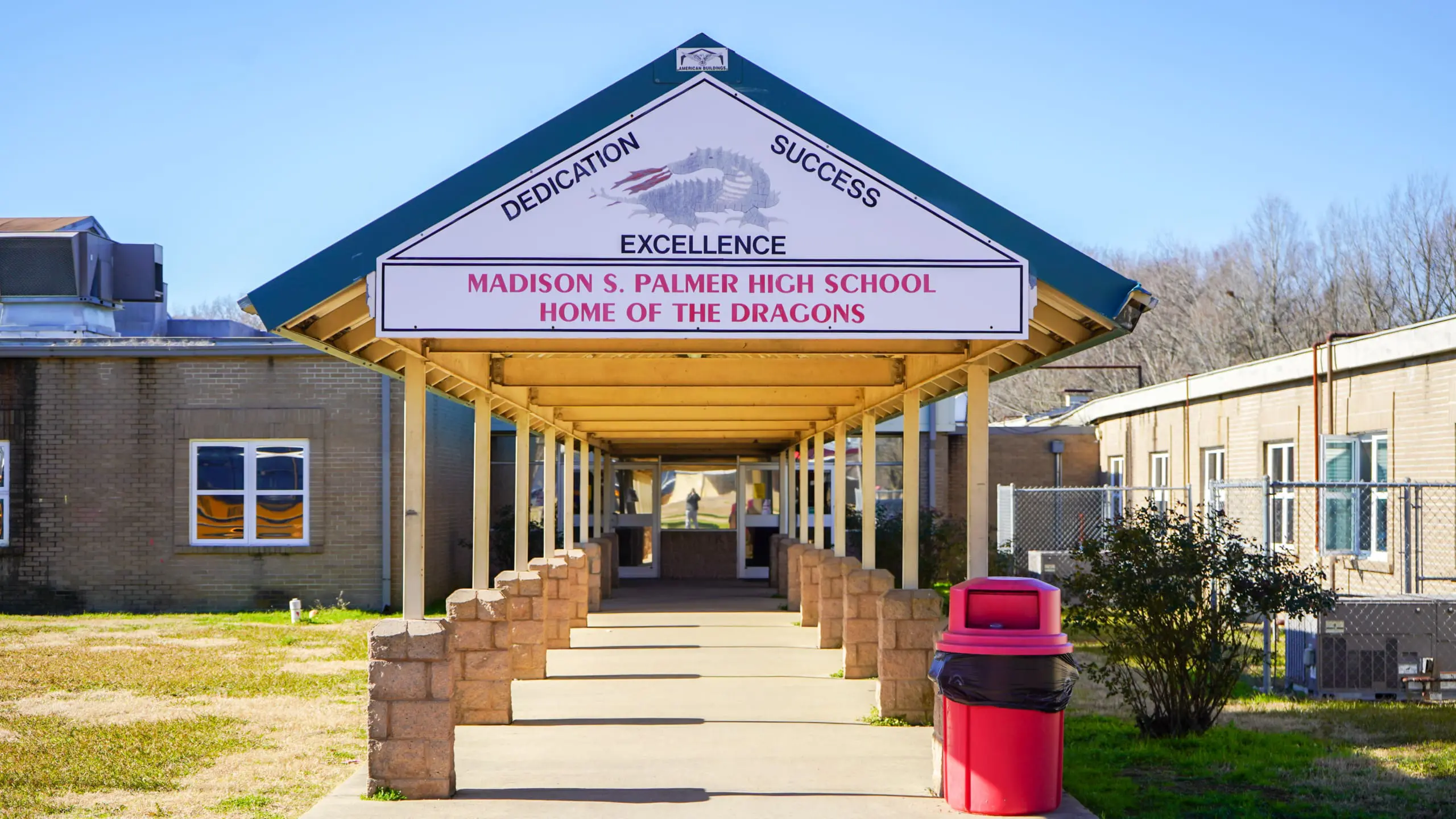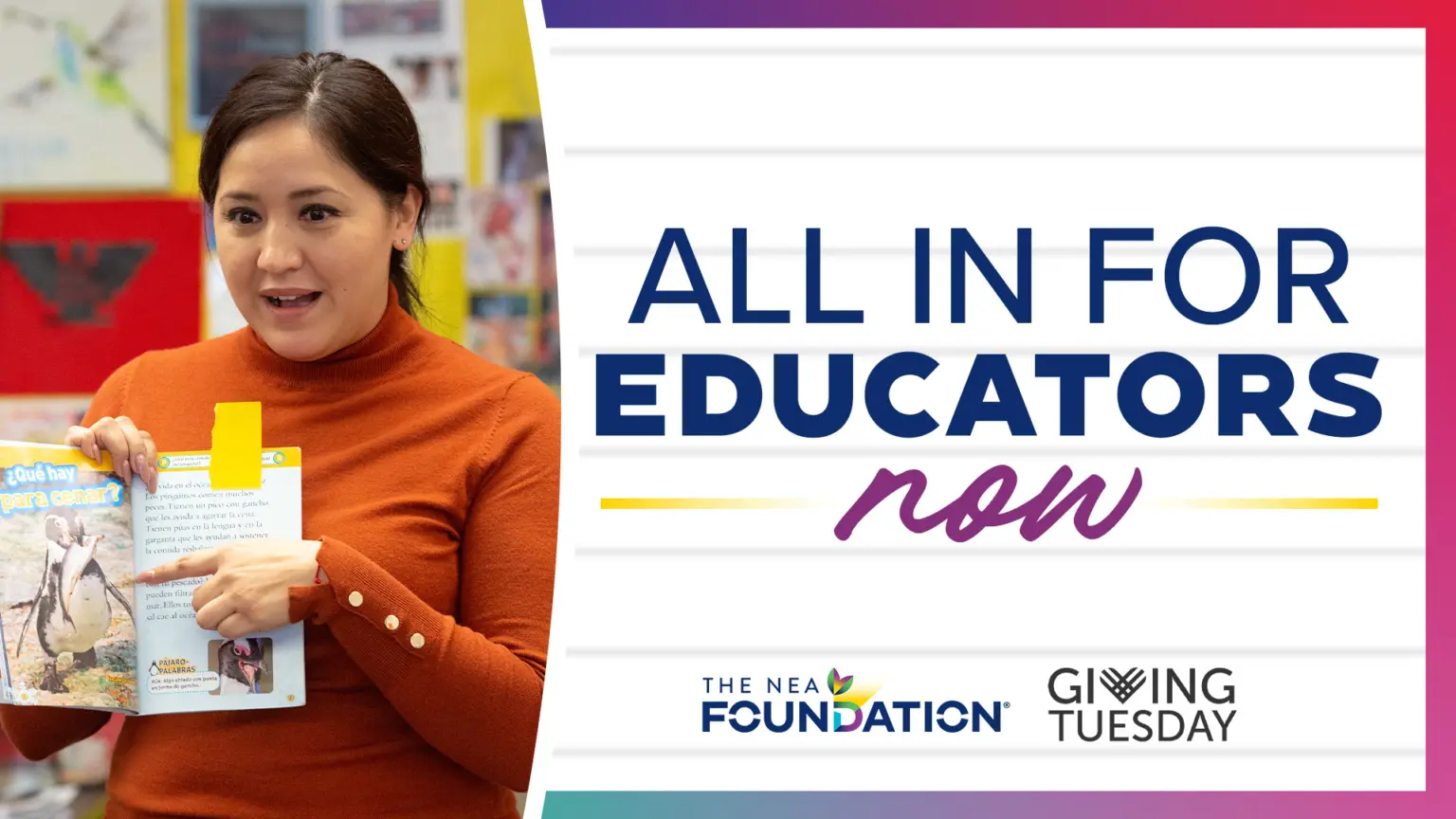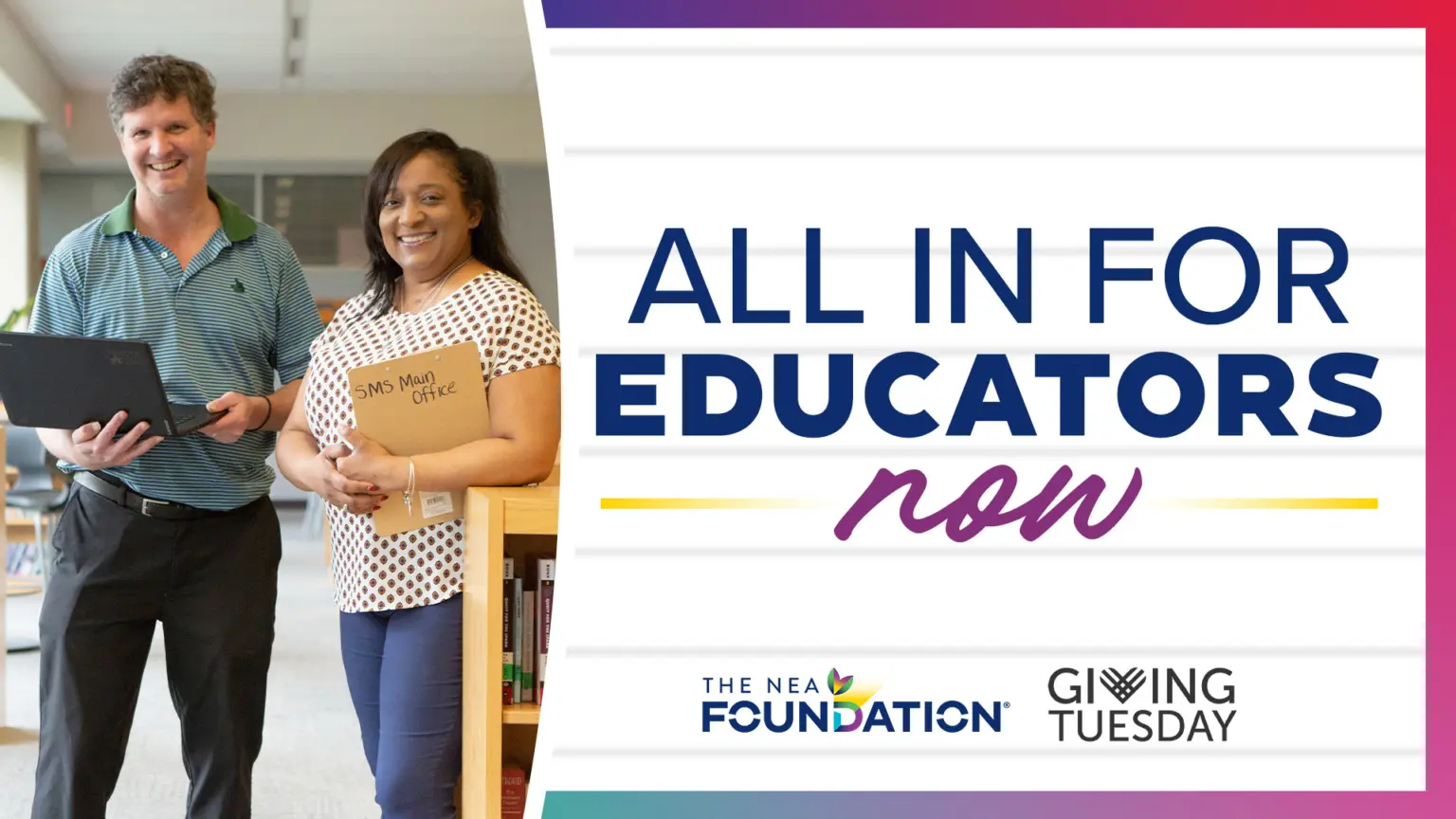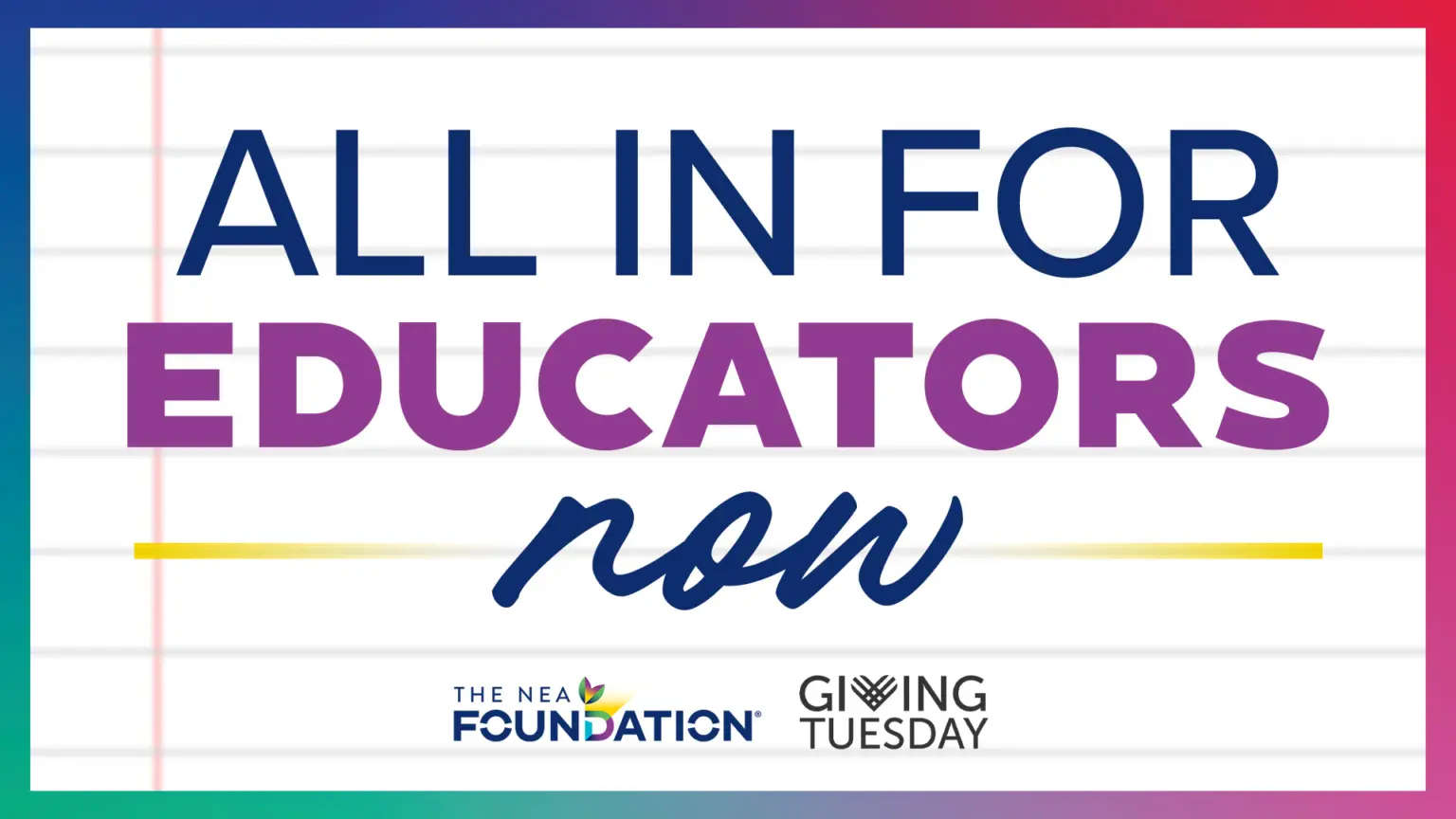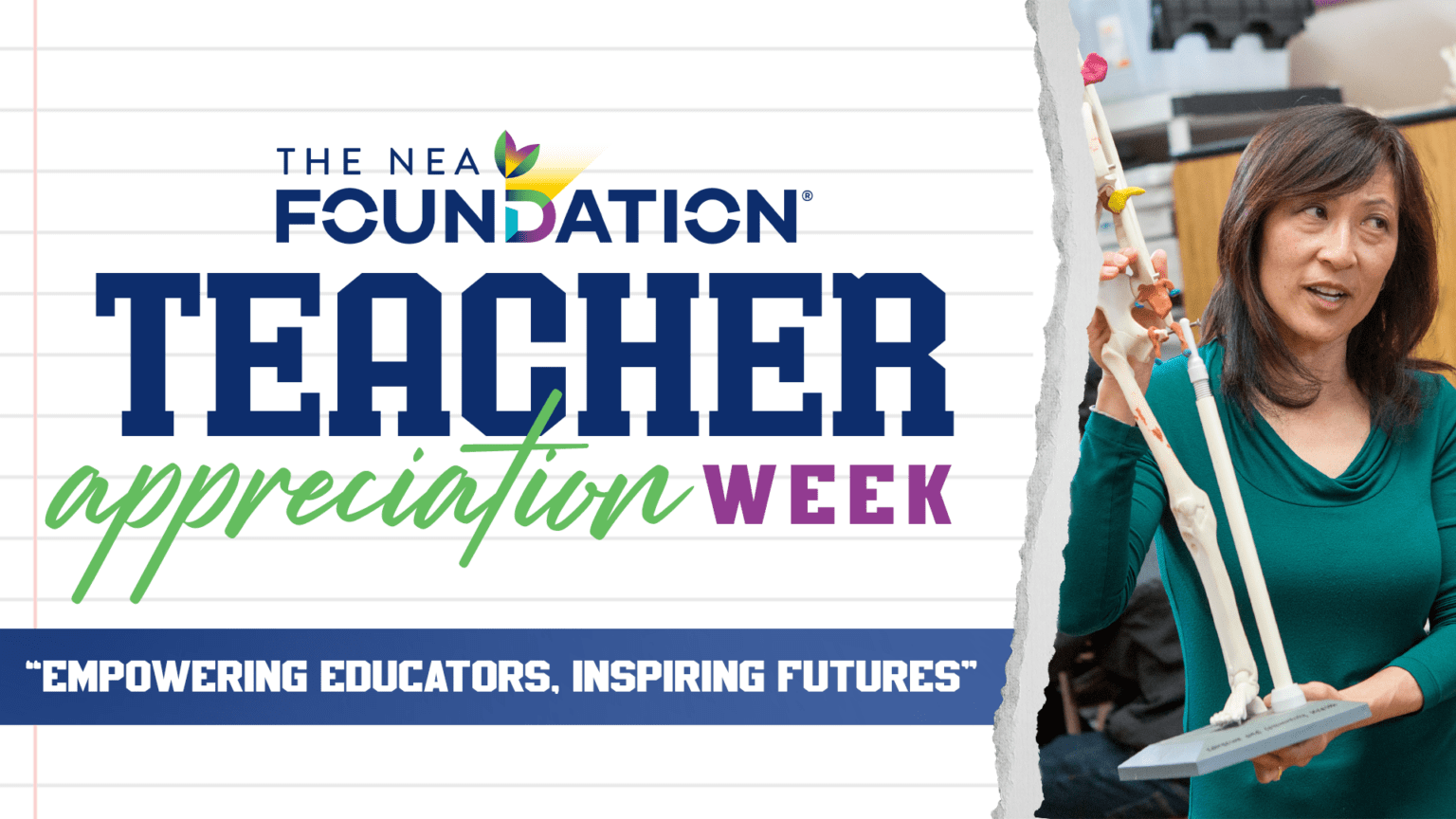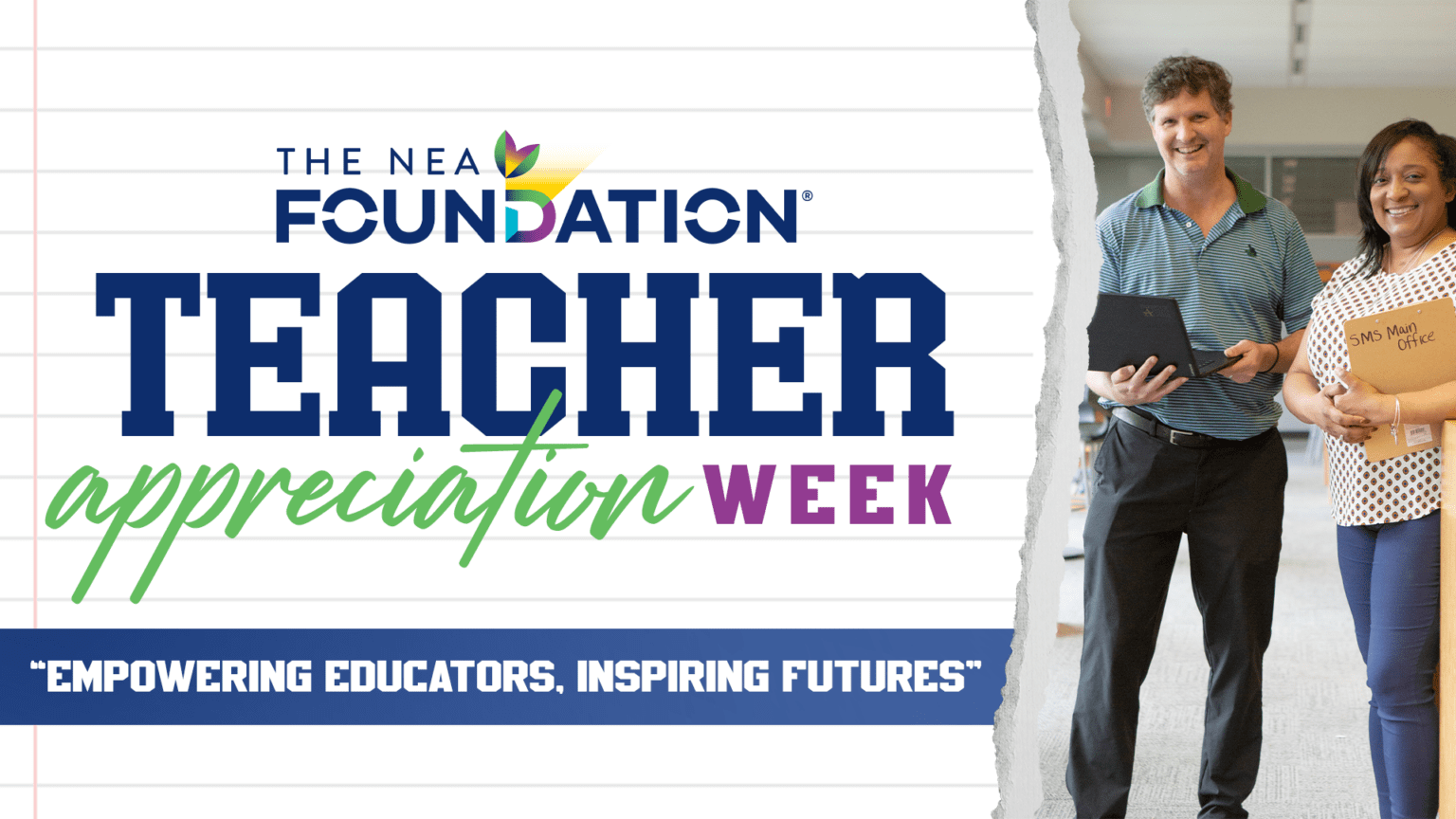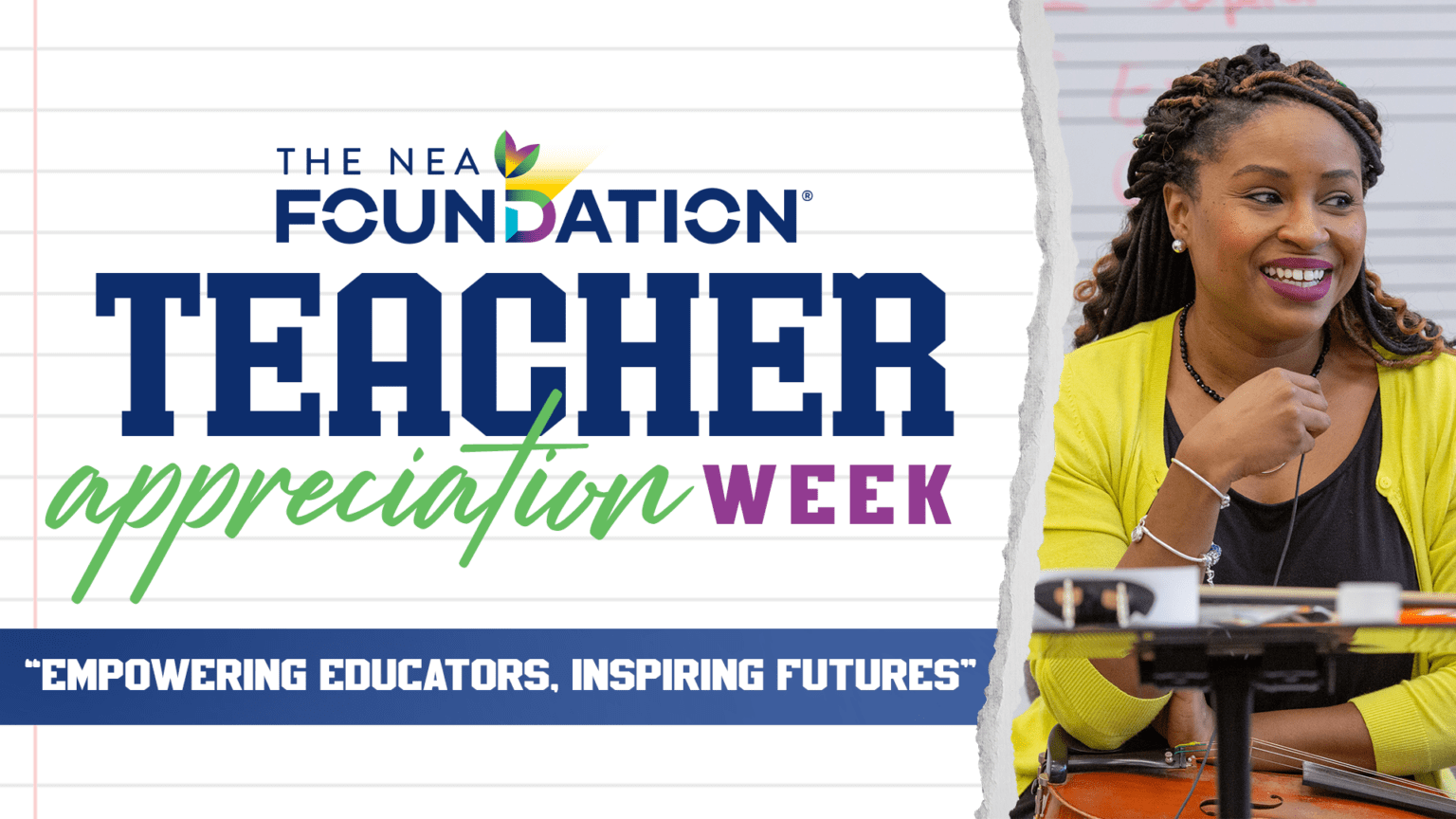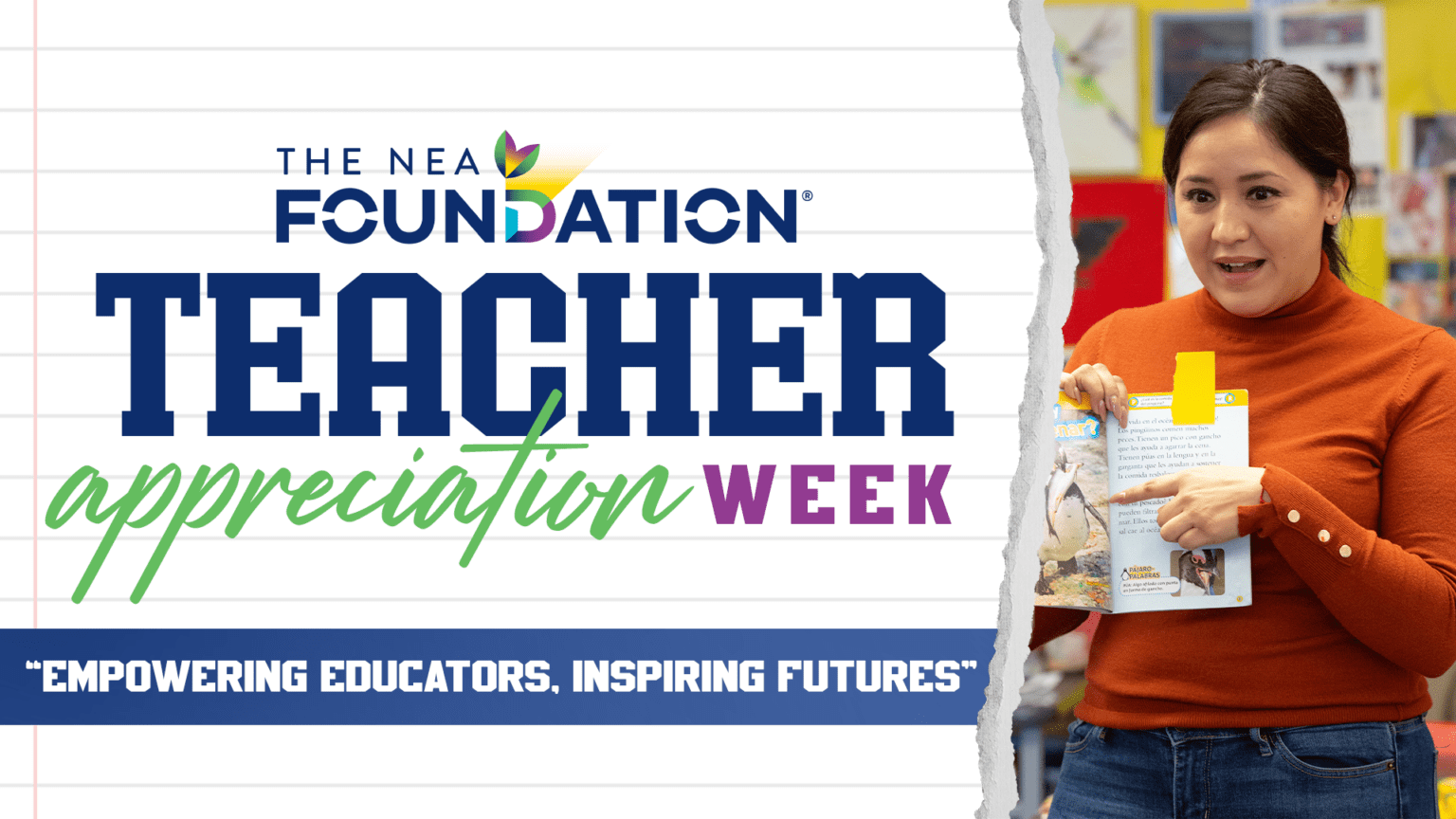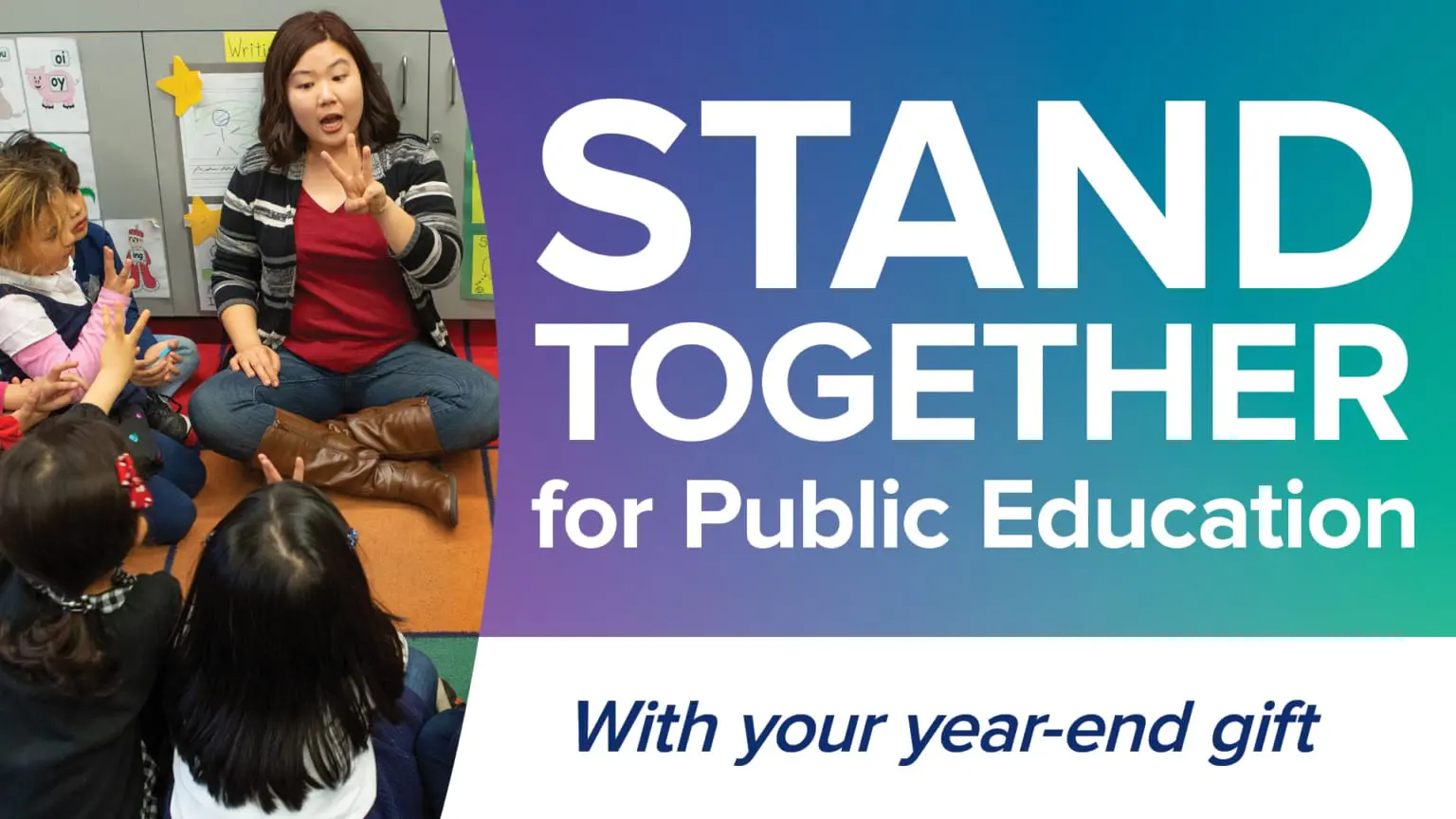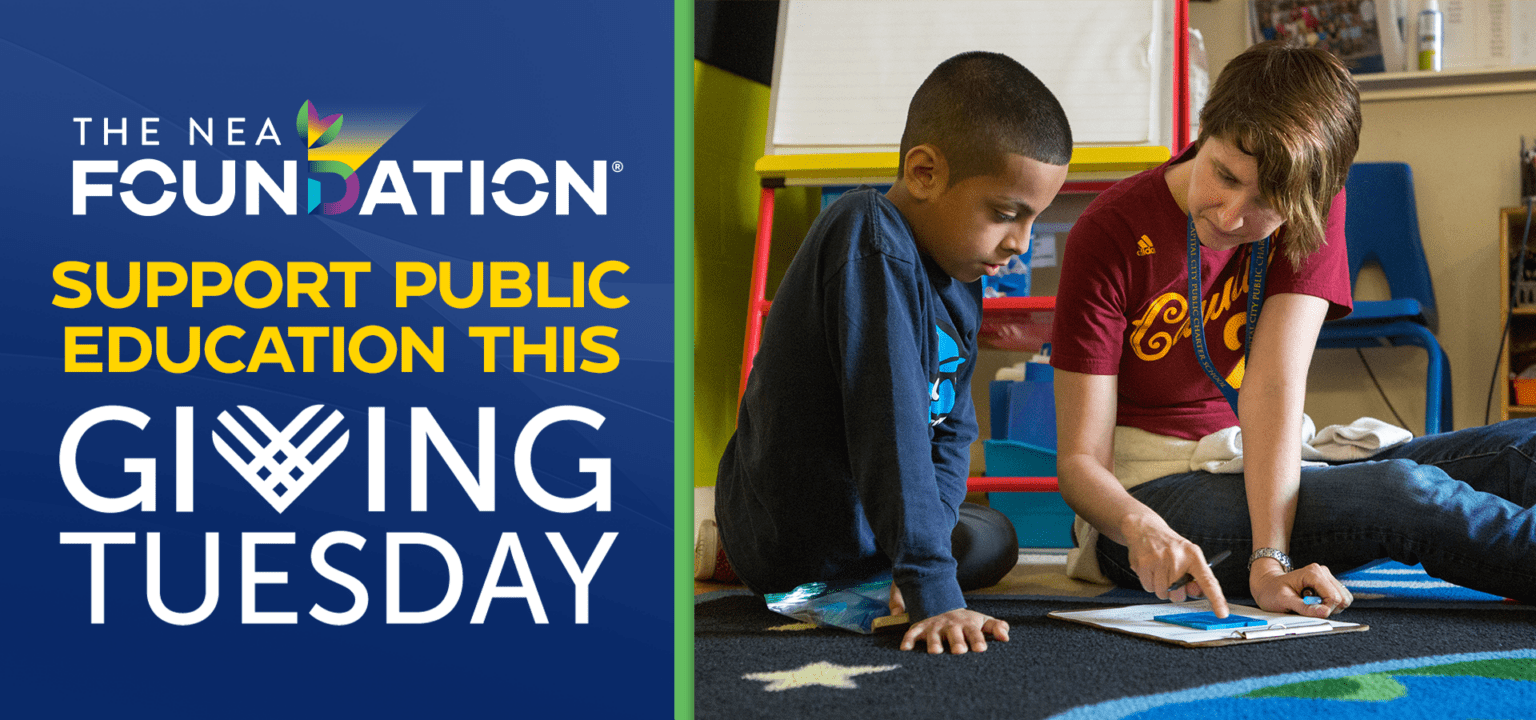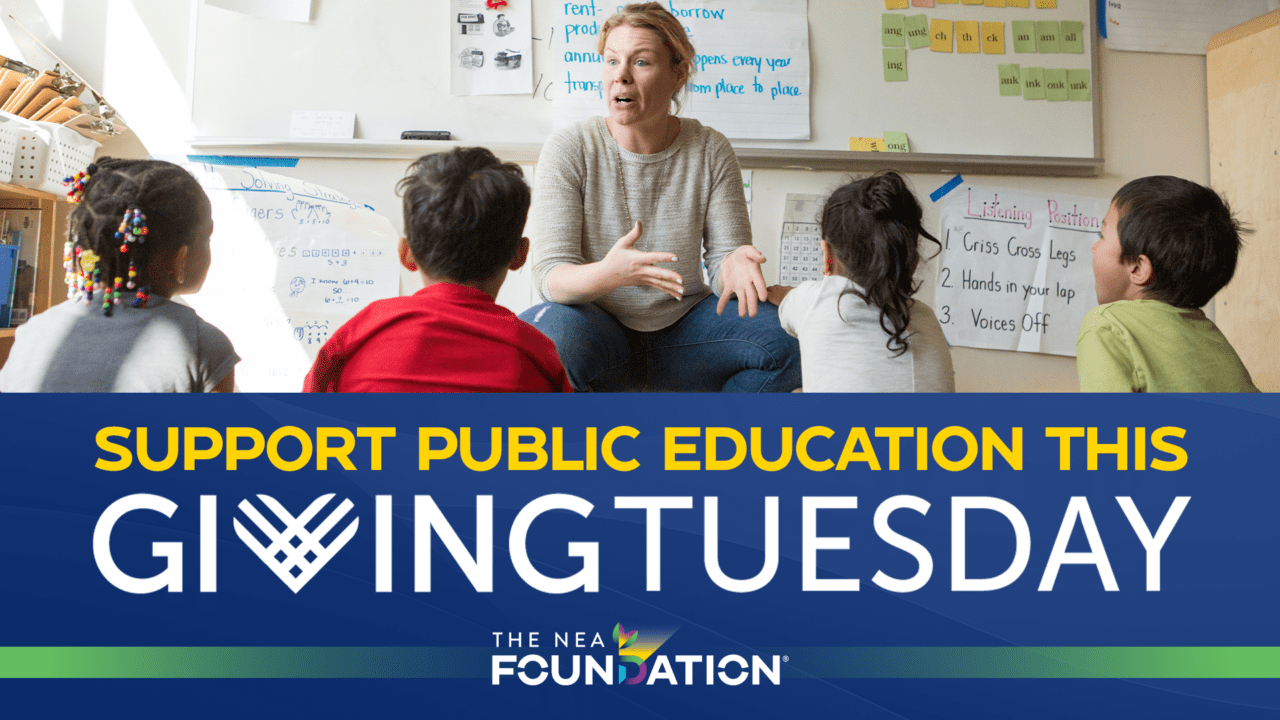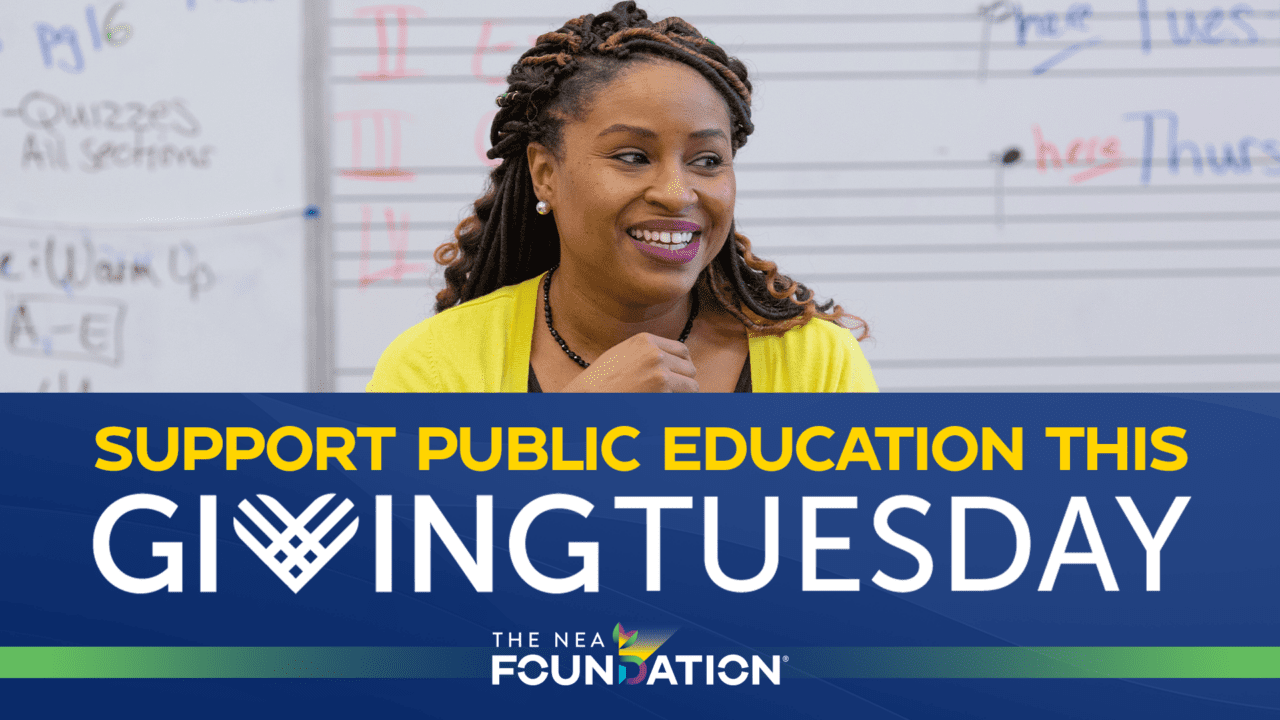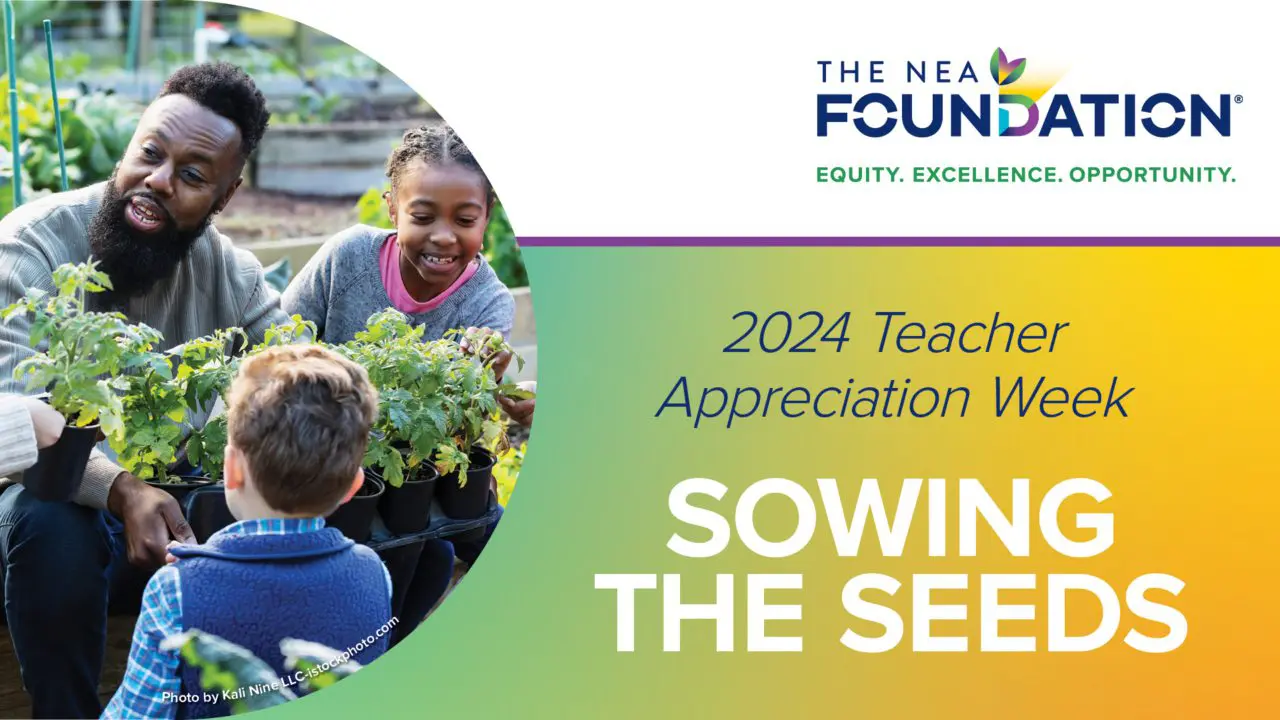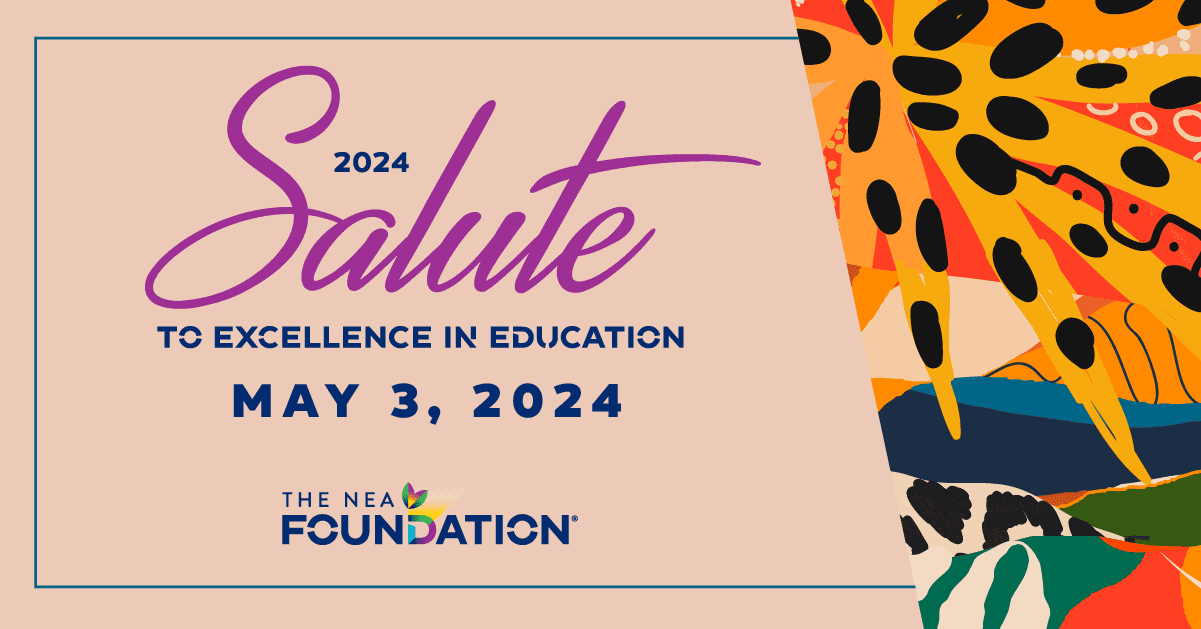The NEA Foundation is pleased to award mini-grants to eight innovative educators who are changing the way schools center students and families in the Deep South. Each grant period will run from May through December 2025, with the summer months dedicated to research, outcome establishment, and programmatic development. Throughout this time, recipients will have access to ongoing coaching and support from NEA Foundation staff and partners, which will help ensure their success and sustainability beyond the grant period.
The “mini-grants” are a new expansion of The NEA Foundation’s Community Schools Initiative, which launched in 2020 to support the development of community schools in the Deep South. The Foundation employs a four-pronged approach to supporting community schools: grants, technical assistance, convenings, and policy change. These educator-led “mini-grants” provide an additional opportunity to center educators in the advancement of community schools.
Each grant project is described below:
Kimberly Archie, Lanier Jr. Sr. High School at Jackson Public School District in Mississippi: Watch Me Work It Out!
Kimberly Archie’s Watch Me Work It Out! is a school-based wellness initiative designed to equip at-risk scholars with the tools and support to build healthy habits for life. At Lanier, where 100% of students qualify for free lunch, this project tackles barriers to physical and mental well-being by offering accessible, community-centered fitness experiences. Through daily workouts, peer-led challenges, wellness workshops, and mentorship, students will not only strengthen their bodies but also develop their confidence, discipline, and sense of belonging. The initiative also empowers educators as facilitators, role models, and advocates for holistic student growth. With strong partnerships and a budget that covers equipment, trainers, transportation, and incentives, the program is designed to be sustainable and have a profound impact. It stands to promote wellness as a pathway to equity, focus, and long-term success.
Trenton Chess at Clarksdale Municipal School District, Mississippi: Clarksdale Municipal Schools Family Engagement Night
This project proposes a literacy-based Family Engagement Night for Clarksdale Municipal Schools, utilizing Scrabble Jr. to enhance vocabulary, critical thinking, and family-school partnerships. Designed for replication across campuses, the event will feature game stations, teacher-led activities, and prize incentives to create a welcoming and low-pressure environment for learning. Pre- and post-surveys will track vocabulary gains and engagement outcomes. With a clear structure, encompassing teacher stipends, student incentives, and data collection, this model positions educators as leaders and equips families with the tools to support learning at home. It’s a cost-effective, community-centered approach that builds both academic growth and trust.
Kenneth Gaddie, Watson Elementary School at Little Rock School District, Arkansas:
When Art, ELL & STEM Collide, centers on the belief that when creativity meets critical thinking, real transformation can happen in the classroom and beyond. Kenneth Gaddie, a 4th grade educator at Watson Elementary School, is building an arts-integrated STEAM experience that speaks directly to the needs of a richly diverse student body—primarily Hispanic/Latino and Black students, many of whom are English Language Learners or from low-income households. The goal is to use the performing arts as both a teaching tool and a confidence builder, making STEM subjects more culturally responsive, hands-on, and relevant. With equipment like stage lighting, curtains, and a projector, students will showcase what they’re learning through performance, giving space to voice, identity, and deepened understanding. The project intentionally honors the contributions of Black professionals in STEM while creating a platform for family engagement through STEAM nights. Ultimately, this is about more than just a lesson plan—it’s about making sure every child feels seen, every educator feels empowered, and every performance reflects the brilliance already living in the building.
Claralesa Manning, Lanier Jr. Sr. High School at Jackson Public School District, Mississippi: The Lanier Student Empowerment Resource Center
Claralesa Manning’s Lanier Student Empowerment Resource Center (L-SERC) is about meeting students where they are—and helping them rise. At a school where 100% of students receive free lunch and many families face economic instability, L-SERC is designed to remove barriers to learning by offering a safe, supportive space filled with what students need most: hygiene products, food, clothing, academic tools, mental wellness resources, and future-ready programming. Manning is leveraging her role as Lead Interventionist and CIS Site Coordinator to lead with compassion and strategy, creating a center that goes beyond handouts to offer workshops on financial literacy, college and career readiness, and SEL. This project is rooted in the belief that access to opportunities builds equity, and equity in turn builds confidence. With community partnerships and student involvement baked into its long-term vision, L-SERC is poised to become a model of integrated care that uplifts not only students but also the entire school and surrounding community.
Jessica’s Montgomery, White River Academy at Batesville School District, Arkansas: Project E.L.A (Expanding Literary Access)
At White River Academy’s ALE (Alternative Learning Environment), Jessica Montgomery is on a mission to restore dignity, access, and opportunity through Project E.L.A. (Expanding Literary Access). Her goal is to rebuild the student library into a vibrant, inclusive space that fosters literacy, structure, and a love for learning. Serving students who often feel left behind—including those with IEPs, behavioral challenges, and limited socioeconomic means—this project offers more than just books and beanbags. It’s about normalizing the educational experience for ALE students, ensuring they have the same access to knowledge, quiet, and joy as their peers in traditional settings. From updated fiction and non-fiction books to audiobooks, seating, and a digital catalog, Montgomery is crafting a sanctuary where students can research, reflect, and rise. Her plan includes engaging students in the setup, tracking morale and library use, and sharing her learnings to shift how we view and value alternative education spaces.
Paula Williams, Batesville School District Resource Hub in Arkansas: Operation: Empower Our Families and Strengthen Our Schools
Led by Paula Williams, Operation: Empower Our Families and Strengthen Our Schools is a family engagement model anchored in monthly alliance meetings that provide essential resources, practical knowledge, and culturally responsive support to families across the Batesville School District. Through strategic partnerships with over 100 alliance members, including healthcare providers, housing support organizations, workforce agencies, and educators, the initiative connects families to the tools they need to navigate non-academic barriers that often impact student success. Each session focuses on a key topic like food security, mental health, or financial stability, and is supported with targeted incentives (such as first aid kits, diapers, or school supplies) that reinforce learning and meet immediate needs. Educators serve as key facilitators, offering insight into student needs, co-leading sessions with community partners, and helping families translate resources into daily support for their children. The project also includes built-in language access through bilingual materials and interpretation services to ensure inclusivity for the district’s large Hispanic/Latino population. Families receive transportation support via gas cards and meals are provided to create a welcoming, accessible environment. Already showing strong momentum, this initiative has potential to be a scalable blueprint for other districts seeking to advance equity by meeting families where they are and positioning schools as true hubs of support.
Maudy Wright, Middle School Parent Liaison Quitman School District, Mississippi: Quitman County School’s Clothing Closet
Maudy Wright’s project to expand the Quitman County School’s Clothing Closet is rooted in care, dignity, and equity. Currently limited to serving families in transition, this initiative broadens access so any student in need can receive clothing, shoes, backpacks, and daily personal essentials—because no child should be distracted from learning by what they lack. As Parent Liaison, Wright sees firsthand how meeting basic needs helps students show up with confidence and focus. The project also creates space for community involvement, with plans to recognize student and family contributions and encourage donations throughout the year. This is a simple but powerful model of how schools can lead with compassion and build trust, one act of support at a time.
James Young, Lanier Jr. Sr. High School at Jackson Public School District in Mississippi: From Learners to Leaders
James Young’s From Learners to Leaders is a targeted effort to engage and empower male students and community members at Lanier Jr. Sr. High through relationship-building and life-skill development. Rooted in the understanding that positive male engagement strengthens school culture and fosters student success, the project will create intentional spaces—such as cooking classes, mentoring sessions, and community breakfasts—where men and boys can connect, learn, and lead. With support from guest speakers, local chefs, and faith-based and civic partners, the initiative aims to foster pride, responsibility, and school involvement among young men. While the activities may vary, the long-term vision is clear: to build a stronger, more connected community by centering the voices and experiences of men, a vital piece of the community that isn’t often at the core of secondary educational involvements.
Want to support more projects like this? Make a donation today and sign up for our email newsletter to stay in the loop about more stories of excellence in public education.

